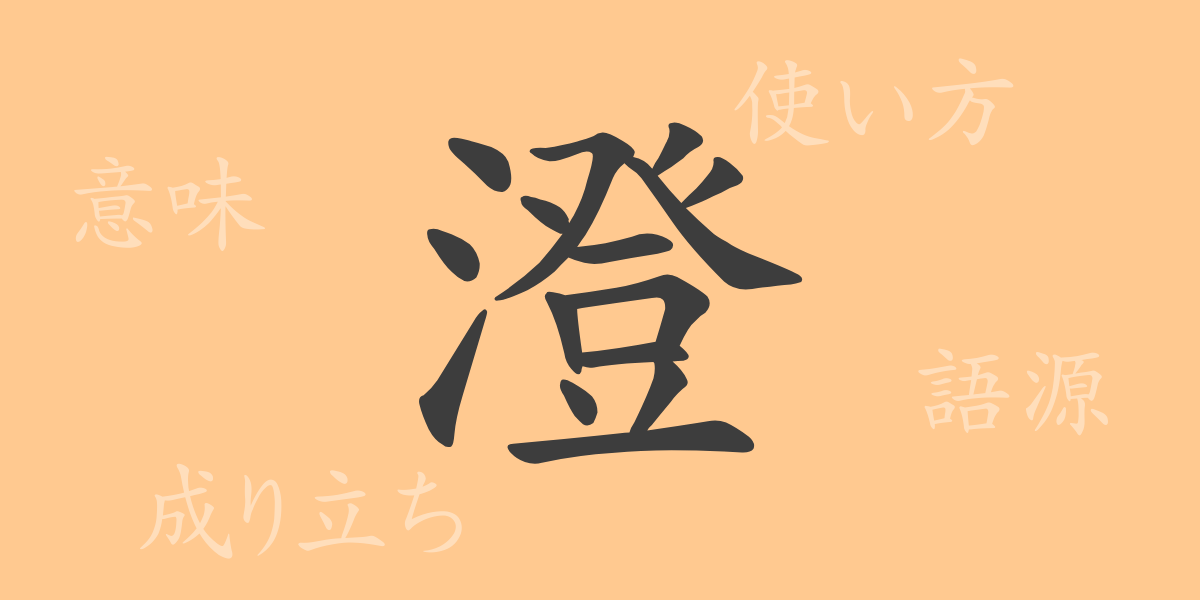One of the kanji that symbolizes the beauty of the Japanese language is ‘澄(チョウ)’. This character, reminiscent of the clarity of water, is imbued with deep meaning and history. In this article, we will explore the etymology of ‘澄’, its meanings, usage, pronunciation, number of strokes, radical, and extend into the phrases, idioms, and proverbs that use ‘澄’. Join us on a journey into the profound depths of the Japanese language.
Origins of ‘澄(チョウ)’
The kanji ‘澄’ originated as a pictograph in ancient China, depicting the clarity and transparency of water. It evolved from ancient Chinese pictographs representing waterside scenery, eventually forming the character ‘澄’. Over time, it has been adopted into Japanese, signifying the clear state of water.
Meaning and Usage of ‘澄(チョウ)’
‘澄’ is used to describe states of clarity and transparency like ‘water clears’ or ‘heart clears’, and in expressions such as ‘澄み切る(すみきる)’, it illustrates a state where everything is visible clearly. The character is employed not only to denote physical transparency but also to symbolize psychological purity and sincerity.
Pronunciation, Stroke Count, and Radical of ‘澄(チョウ)’
The kanji ‘澄’ has several readings, depending on its use:
- Pronunciation: On’yomi ‘チョウ’, Kun’yomi ‘すむ’, ‘すます’
- Stroke Count: 14 strokes
- Radical: ‘水’ (water), read as ‘みず’ or ‘さんずい’
Phrases, Idioms, and Proverbs Using ‘澄(チョウ)’
There are numerous phrases, idioms, and proverbs that include ‘澄’, each conveying unique meanings:
- 澄み切る(すみきる) – Describes a situation where water or air is exceptionally clear.
- 澄ます(すます) – To quiet one’s heart so as not to let others perceive one’s feelings.
- 澄んだ心(すんだこころ) – Represents a state of purity of heart, free from any malevolent thoughts.
- 水澄まし(みずすまし) – Refers to a heart that is as clear and clean as water.
Conclusion on ‘澄(チョウ)’
The kanji ‘澄’, with its connotations of clarity and transparency, enriches Japanese expressions significantly. It is used to describe not only physical cleanliness but also states of the mind, making it a crucial element in conveying the elegance of the Japanese language. Whenever you encounter ‘澄’ in daily life, remember the rich expressions and meanings it holds.

























